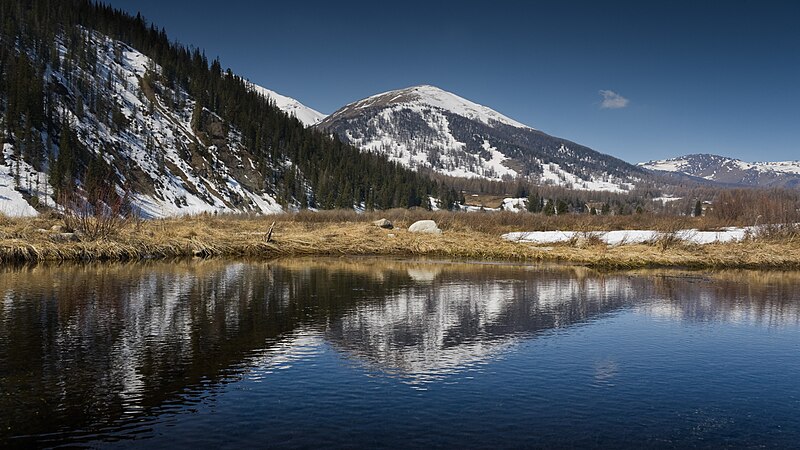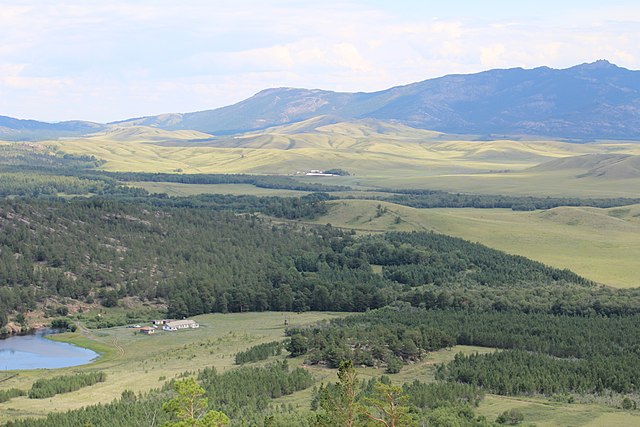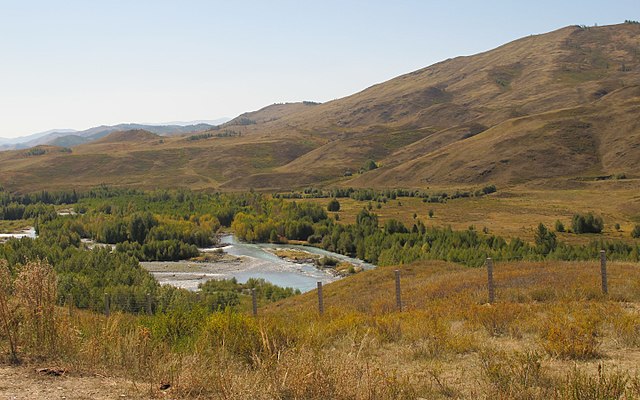
Thammasat University students are cordially invited to participate in a free Zoom event on Journalism in Kazakhstan.
The Thammasat University Library collection includes many books about different aspects of life in Kazakhstan, a Central Asian country and former Soviet republic extending from the Caspian Sea in the west to the Altai Mountains at its eastern border with China and Russia.
The event will be held on Wednesday, 9 February starting at 7pm Bangkok time.
It is organized by the Reuters Institute for the Study of Journalism, the University of Oxford.
Students may register to receive a Zoom link at this link:
https://us02web.zoom.us/webinar/register/WN_lBDSk1k_TOildhjqvqop0A
For further information or with any questions, please write to
reuters.institute@politics.ox.ac.uk
As the webpage announcing the event explains,
Darkhan Umyrbekov is Digital Editor at the Kazakh service of Radio Free Europe/Radio Liberty (RFE/RL), a United States government-funded organization that broadcasts and reports news, information, and analysis to countries in Eastern Europe, Central Asia, Caucasus, and the Middle East where it says that the free flow of information is either banned by government authorities or not fully developed. RFE/RL is a private, non-profit corporation supervised by the U.S. Agency for Global Media, an independent government agency overseeing all U.S. federal government international broadcasting services.
Darkhan Umyrbekov was arrested for his coverage of the protests earlier this year, and will talk on 9 February about the current situation for journalists in his homeland.

Last month, the RFE/RL website noted:
RFE/RL Journalists Targeted As Kazakhstan Protests Spiral
January 05, 2022
RFE/RL report – What’s Behind The State Of Emergency And Protests Erupting Across
WASHINGTON – RFE/RL President Jamie Fly criticized the targeting of Kazakh journalists covering fuel price protests that have spiraled beyond the government’s control.
Said Fly, “Reports of gunfire and other violence directed at those reporting on these protests, are deeply concerning—as are attempts to limit the flow of information within and out of the country, by targeting the internet and social media and blocking media websites, including that of our Kazakh Service. At such an unstable time, journalists must be allowed to report the facts as they unfold.”
Today, while covering protests in the central square of Almaty, individuals in a security forces vehicle opened fire indiscriminately at protesters and journalists who were wearing their legally-mandated “Press” vests—including those reporting for RFE/RL. Yesterday, two RFE/RL journalists were detained by police while reporting on the protests in Almaty and Nur-Sultan—Darkhan Umirbekov, an editor in Nur-Sultan who was detained and held for 4.5 hours for questioning, and acting Almaty bureau chief Kasym Amanzhol, who was held for 2 hours of questioning after being picked up as he filmed protests earlier in the day.
RFE/RL journalists have been providing on-the-ground coverage of the recent wave of nationwide protests sparked by a sharp, unexpected doubling of retail prices for liquefied petroleum gas (LPG) used in vehicles, which amplified worries among Kazakhs of knock-on effects to the prices of other daily commodities such as food. The protests, which started in Kazakhstan’s long-restive western Mangystau region, quickly expanded to urban centers throughout the country, including the capital, Nur-Sultan and commercial hub of Almaty, where protesters stormed city hall, set fire to a presidential residence, and seized control of the airport. A nationwide state of emergency has been declared.
Access to the website of RE/RL’s Kazakh Service was blocked within Kazakhstan today, along with those of several other independent media outlets including Orda.kz and KazTAG. Mobile Internet communications were down for much of the day; access remains blocked to popular social media platforms including WhatsApp, Telegram, and Skype.
RFE/RL’s Kazakh Service, known locally as Radio Azattyq, reports accurate news and informed analysis in both the Kazakh and Russian languages that state-controlled media is often unable or unwilling to provide, while serving as a platform for the free exchange of ideas. In FY 2021, the service’s azattyq.org website logged 50 million visits and 69.7 million page views. More than 1.23 million people subscribe to its YouTube feed, and 612,000 follow its Instagram page.
Current Time is a 24/7 Russian-language digital and TV network led by RFE/RL in cooperation with VOA. In addition to reporting uncensored news, it is the largest provider of independent, Russian-language films to its audiences. Despite rising pressure on Current Time from the Russian government, which has designated the network a media “foreign agent,” Current Time videos were viewed over 1.3 billion times on YouTube, Facebook, and Instagram/IGTV in FY2021.
About RFE/RL
RFE/RL relies on its networks of local reporters to provide accurate news and information to more than 37 million people every week in 27 languages and 23 countries where media freedom is restricted, or where a professional press has not fully developed. Its videos were viewed 7 billion times on Facebook, YouTube, and Instagram/IGTV in FY2021. RFE/RL is an editorially independent media company funded by a grant from the U.S. Congress through the U.S. Agency for Global Media.

The previous day, the RFE/RL website reported:
Kazakh Police Fire Stun Grenades On Protesters In Almaty As President Issues Warning
January 04, 2022 12:23 GMT
By RFE/RL’s Kazakh Service
ALMATY — Kazakh President Qasym-Zhomart Toqaev warned protesters on January 4 that calls to attack government and military buildings were illegal, as he issued a video address to the nation amid protests in several cities.
“The government will not fall, but we want mutual trust and dialogue rather than conflict,” he said.
His appeal came shortly after reports of security forces using stun grenades as hundreds of protesters tried to storm the mayor’s office in the country’s biggest city, Almaty, late on January 4.
Explosions could be heard coming from the vicinity of the city’s main square where the mayor’s office is located, video uploaded to social media indicated.
Republic Square had been closed to the public and access to mobile Internet connection was limited in Almaty.
Despite the security crackdown, crowds continued to gather and march down the streets of Almaty into the late hours of January 4.
Earlier, Kazakh police detained a second RFE/RL journalist covering the protests in the Central Asian nation as unrest grows over a steep rise in energy prices.
Darkhan Umirbekov, an editor with RFE/RL’s Kazakh Service, was detained in the capital Nur-Sultan on January 4 by police at a demonstration just hours after officers briefly held, without explanation, Kasym Amanzhol, the acting Almaty bureau chief of RFE/RL’s Kazakh language service, known locally as Azattyk, as he filmed the third consecutive day of protests over a sudden, dramatic hike in prices for liquefied petroleum gas (LPG), which is used in vehicles.
RFE/RL President Jamie Fly called for Umirbekov and any other detained journalists to be released.
“RFE/RL journalists in Kazakhstan are providing an important public service by covering their fellow citizens’ demands. The Kazakh government must immediately release Darkhan Umirbekov and any other detained journalists. It is outrageous that reporters would be arrested for just doing their jobs,” Fly said in a statement.
Umirbekov was later released after being interrogated by police for 4 1/2 hours.
Protests erupted in the western Kazakh region of Mangystau on January 2 over the spike in LPG prices and have since spread to cities and towns across the country.
In the evening on January 4, the government announced it was restoring the price cap of 50 tenge ($0.11) per liter, or less than half the market price, in Mangystau.
Toqaev also signed a decree to institute a state of emergency in the Almaty and Mangystau regions.
Earlier, hundreds of people calling for lower gas prices and for the government to resign gathered in the central squares of the town of Zhanaozen and Aqtau, the regional administrative center for Mangystau, after demonstrators had spent their second night in the area.
Smaller rallies were held in the northern city of Aqtobe, Shymkent in the south, Oral in the west, Almaty in the southeast, and Nur-Sultan, the capital, in support of the protesters in Mangystau and voice discontent over issues such as corruption, unemployment, and low wages.
More than 20 people were detained by police in the protests.
Global organizations such as the International Press Institute (IPI), Index on Censorship, Reporters without Borders, the Committee to Protect Journalists, and the United States Agency for Global Media (USAGM) have extensively covered the current situation in Kazakhstan.

(All images courtesy of Wikimedia Commons)
